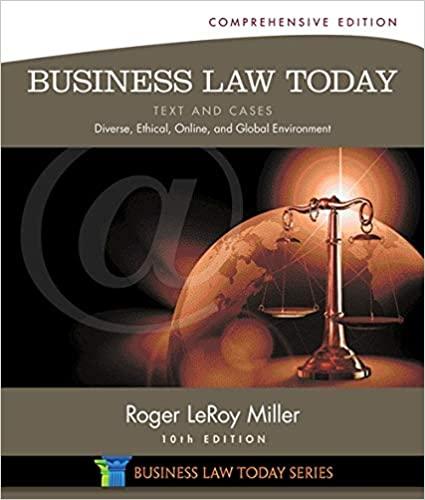Assume that your business partner, Gayanne Zokhrabov, was at the train station when a train, traveling at
Question:
Assume that your business partner, Gayanne Zokhrabov, was at the train station when a train, traveling at more than 70 mph, hit eighteen-year-old Hiroyuki Joho, who was running across the tracks. The impact killed Joho and flung parts of his body about 100 feet into the air. Some of them landed on Gayanne and knocked her to the ground. As a result, she hurt her shoulder and broke her leg and wrist. She has not been able to work and has hired an attorney to file a negligence lawsuit against Joho’s estate. (The attorney believes that Gayanne cannot successfully sue Amtrak because of a lack of proximate cause—it was not reasonably foreseeable that Joho would run across the tracks and his body parts would cause injuries to others.)
1. One group should analyze whether Joho had a duty to Gayanne and whether his decision to run in front of the train was a breach of that duty because she was in the zone of danger.
2. A second group should consider proximate cause: Was it reasonably foreseeable that a train accident could send Joho’s body parts into crowds of waiting passengers?
3. A third group should discuss whether it is ethical to sue the dead man’s estate over flying body parts. Further, what impact might the case and the publicity surrounding it have on you and your partner’s business reputation?
Step by Step Answer:

Business Law Today Comprehensive Text And Cases Diverse Ethical Online And Global Environment
ISBN: 9781285428932
10th Edition
Authors: Roger LeRoy Miller





